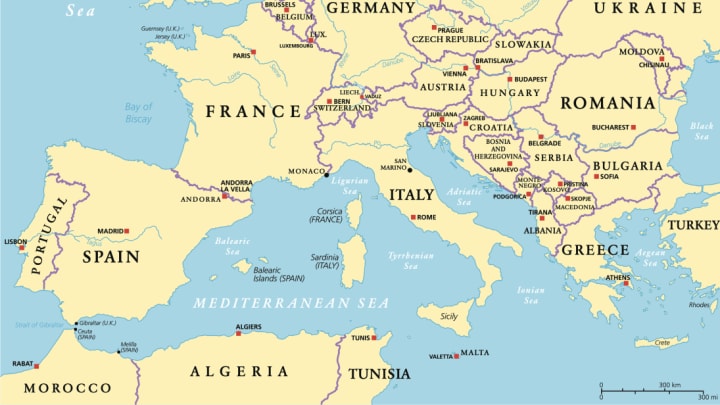The Mediterranean Sea, which takes up approximately 970,000 square miles, might be gone from the face of the Earth 50 million years from now.
The Economist published an explainer on Monday detailing how continental drift (the gradual movement of the Earth's continents) will account for the eventual disappearance of the sea and will generally make our planet look very different in the distant future.
Continental drift happens because the tectonic plates under the Earth's surface are constantly being moved by heat-distributing currents in the planet's mantle. As you read this, Africa and Europe are creeping toward each other across the Mediterranean, headed for a collision that will result in one mega-continent called Eurafrica. When the two continents meet, most geologists agree that the Mediterranean will close up and become mountainous as the landmasses run into each other. Of course, if you're reading this right now, you won't be around to see the new mountain range.
If the creation of a mega-continent makes you think of Pangea, you're right on the money. Scientists theorize that super-continents have formed in cycles throughout Earth's history. Pangea was the most recent one, and it broke up approximately 200 million years ago. Some scientists believe that places us in the middle of a cycle, and a new Pangea, one that will include the mountains formerly known as the Mediterranean Sea, may be in store.
[h/t The Economist]
